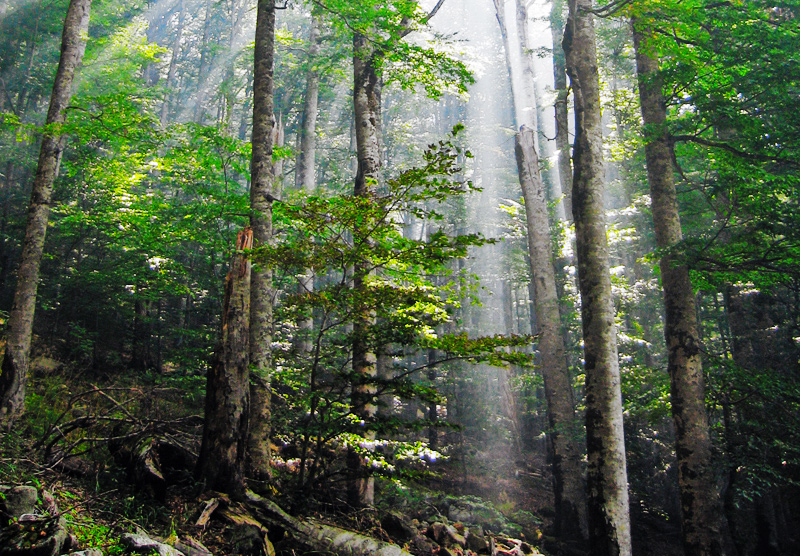The blog to end all blogs. Reviews and comments about all and everything. This blog is NOT affiliated with YouTube, Wikipedia, Microsoft Bing, Gemini, ChatGPT or any commercial vendor! Links don´t imply endorsement. Many posts and comments are ironic. The blogger is not responsible for comments made by others. The languages used are English and Swedish. Content warning: Essentially everything.
Sunday, July 29, 2018
Green revelations
"Dark Green Religion" is a scholarly study of Green, Earth-centred spirituality. The author, Bron Taylor, is a scholar of ethics and religion. He is relatively sympathetic to his chosen subject, and also turns out to be a surfer. And yes, that detail is significant.
There are several differences between Taylor's approach and the standard view of religion. Like most other scholars of religion, Taylor makes no distinction between "religion" and "spirituality". However, he then takes the necessary next step, and asks why everyone else *do* make this distinction, and what it can possibly mean. The standard answer is that it doesn't mean anything at all, except that some groups for tactical reasons refuse to be called "religious". Taylor believes that the difference is more robust, and points out that even people who consider themselves religious sometimes make a distinction between religion and spirituality, even within the same tradition. Although Taylor's book is titled "Dark Green Religion", a more apt title would have been "Dark Green Spirituality".
The main thing that marks this book out, however, is not the (perhaps too in-house) distinction between "religion" and "spirituality". It is Taylor's strong emphasis on the fact that religion/spirituality can be naturalistic. This is something the New Atheists would hotly deny, and the author does indeed polemicize against Richard Dawkins on precisely this point. Christians probably wouldn't deny that religion can be naturalistic, but they might want to claim, that such "religion" is actually a form of idolatry. Taylor has identified two forms of dark green religion, which he calls animism and Gaian religion. Both can exist in a naturalistic version, as well as a more standard, spiritual version.
I believe Taylor is on to something, since many of the people and groups he's describing do have the same psychological/sociological reflexes towards Nature, animals at large or individual animals as traditional religious believers would have towards God, the saints, the Church, etc. Even the more coherent ideological statements of such groups are strongly metaphysical, for instance attempts to derive an objectively valid morality from the real or percieved workings of Nature.
With definitions like these, Taylor's who's who of dark green religion is pretty broad, compared to more standard approaches. Paul Watson of Sea Shepherd, Earth First, Marc Bekoff, Daniel Quinn and James Lovelock (or at least his admirers) are all seen as representatives of naturalistic religion. I got the same uncanny feeling about Bekoff and Quinn myself, when reading their books! (On balace, though, I'd say Bekoff is a naturalistic animist for real, while Quinn's Gaian spirituality is a pure metaphor.) Even Al Gore, Walt Disney and Hollywood lurks in the background, perhaps menacingly, as Taylor makes his inventory of dark green religious influences on our contemporary culture. Strangely, Taylor doesn't consider Deep Ecology to be a form of dark green religion, although he admits there are similarities. Personally, the very first thing that struck me when looking through the standard Deep Ecology anthologies was precisely their spiritual or quasi-spiritual character. It's therefore not clear to me why Taylor has left them out of the picture. Perhaps he simply hasn't had the time to read the relevant material?
Taylor also reveals that many well-known environmentalists are or were religious or spiritual. The list includes John Muir, Rachel Carson, Jane Goodall and (perhaps) Aldo Leopold. Muir's spirituality, which the author believes was anti-Christian and pantheist, is common knowledge. But how many people know that Carson, Goodall and Leopold had religious/spiritual affinities? Goodall, at least by Taylor's account, sounds almost New Age! This, incidentally, explains both the co-operation between Bekoff and Goodall, and some rather curious traits of their books, such as the claim that chimpanzees worship waterfalls.
The most intriguing chapter of "Dark Green Religion", at least to me, is titled "Surfing Spirituality" in which Taylor (a surfer himself, remember?) investigates the connections between surfing, Hawaiian religion, the New Age/hippie scene in California, environmentalist activism, Edenic myths, and so on! I readily admit that I had no idea. I always pictured surfers as tanned sociopaths with too much money and too much spare time, busy killing sharks and swordfish when not preoccupied with finding "the perfect wave". One of my co-workers has actually tried surfing, although he's personal perfect wave is skateboarding. Perhaps I should ask him if he ever met Bron Taylor?
;-)
"Dark Green Religion" is divided into nine chapters. Of these, chapters 2 - 5 are the most interesing. The remaining ones sound more like encyclopedias of dark green influence on pop culture, and get frankly tedious after a while. The book is at bottom a scholarly study, but it's consciously written in a style directed at the more general reader as well, and it seems to be popular among people who actually believe in the "dark green" message themselves (see the other customer reviews). I also consider the book to be very useful and interesting.
Subscribe to:
Post Comments (Atom)

No comments:
Post a Comment